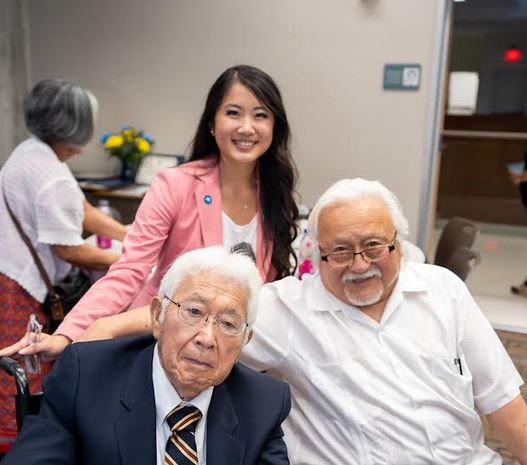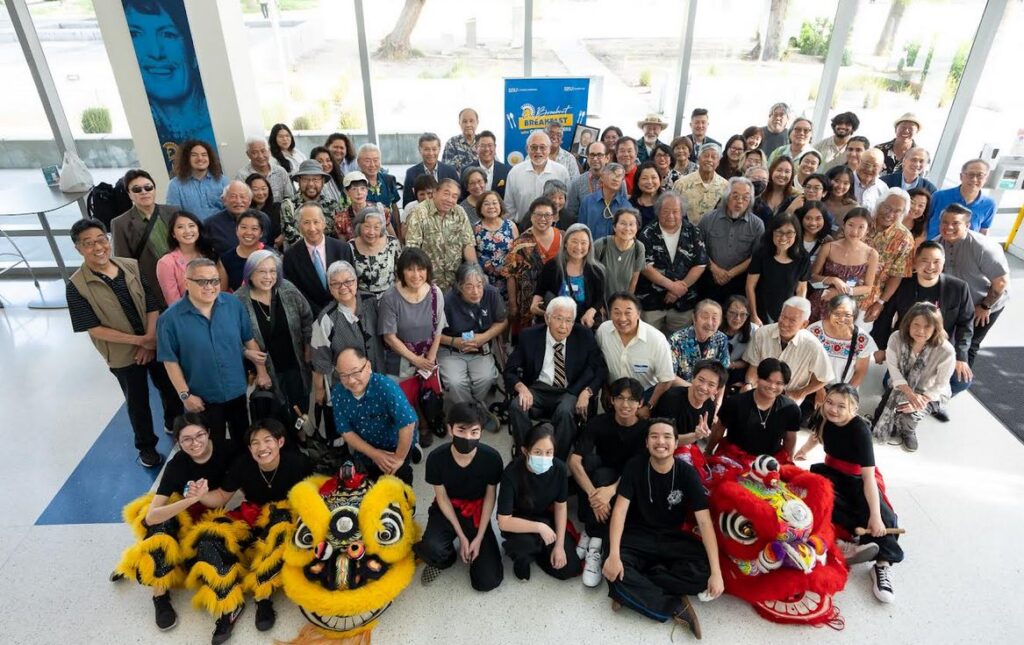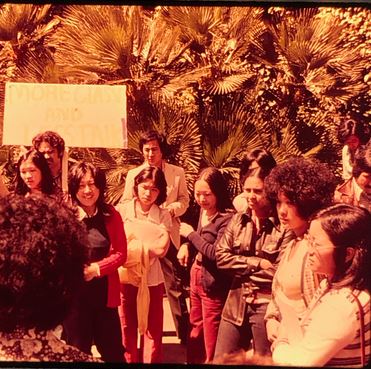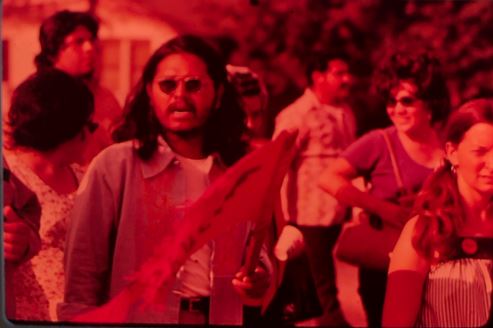By Amy-Xiaoshi DePaola
San Jose State University graduates received their diplomas last month with students such as Nina Chuang ready to advocate for the AAPI community.
“I’ve always had a passion for knowing my roots and heritage,” said Chuang, who majored in food science and hopes to either work under a legislative leader or pursue graduate studies in nutrition or Asian American studies.
Chuang credits her ignited spark for activism to a general education class led by Hien Do, which inspired her to pursue a minor in Asian American studies. From that point on, she found herself in a leadership role as Associated Students president—organizing protests; writing anti-AAPI hate resolutions amid the pandemic; and putting together events such as the university’s 9066 Day of Remembrance and pushing forward the construction of a mural and monument to honor the Japanese Americans who were imprisoned in incarceration camps during World War Two.
Chuang is one of the students inspired by San Jose State’s Asian American Studies department, which recently celebrated its 50th anniversary with a gathering of alumni and community leaders.

Yvonne Kwan, the program coordinator of Asian American Studies, was the one who came up with the idea last summer. With the help of her community partner, Paul Fong, they “hit the ground running” in January planning the reunion with other San Jose State alumni.
The reunion had 130 people, which included guests such as former congressman Mike Honda, who received his bachelor’s and master’s degrees from San Jose State University; Paul Sakamoto, the first Asian American superintendent of schools in the nation; and the founders of the college’s Asian American studies program, including Dan Kubo and Roy and P.J. Hirabayashi.
San Jose State students were eager to meet their role models, who had laid the foundation for students like them by advocating for and defending AAPI rights at the university and in the area.
“While most of the spotlight was on San Francisco State and UC Berkeley, there were also lots of student and community-based movements happening in the South Bay,” Kwan said.
That’s why the distinction of Asian American studies—versus simply Asian studies—is important, she added.
“Instead of examining culture, language, geography, history and the antiquities from ‘Asia’ broadly constructed, Asian American Studies is grounded in community activism, a critique of White supremacy, anti-coloniality, anti-racism and more,” Kwan said.
The theme of community empowerment runs deep within the department for both professor and students, particularly at a time when critical race theory and ethnic studies are under attack across the nation.

“I really do believe that ethnic studies are extremely key in moving our society forward, because it allows us the space and tools to discuss the importance of our histories and how we interact with society at large, especially since we never had our stories told in history books,” said Tida Ngov, a biomedical engineering major with a double minor in biology and Asian American studies.
Ngov is preparing to graduate in 2025, hoping to work in health care and “be able to use what I’ve learned as the foundation for being able to serve the community,” they said.
Ngov, like Chuang, had little knowledge of Asian American-centered history at the beginning of their college years, a trend common among AAPI adults. According to the Pew Research Center, only 1 in 4 say they are “very or extremely informed about history of Asians in the United States.”
For Ngov, the 50th anniversary of the Asian American Studies department is a symbol of hope for the AAPI community moving forward, and the program itself has significantly grown in the past two years, with 40 minors. But Kwan hopes it’ll expand into something bigger.
“With the passage of CA-AB 1460, we have been in a position to freely dream,” Kwan said.

Fifty-three years after the major in Asian American Studies was rejected at San Jose State University, the proposal is back at the CSU chancellor’s office.
“We hope to launch in fall 2023,” Kwan said, adding that she hopes Asian American studies will become a “standalone department” in five years.
Chuang and Ngov also have high hopes for the expansion and recognition of the department.
“So much of San Jose’s advocacy in history is untold,” Chuang said. “I feel immense pride in our legacy.”
Support our June Membership Drive and receive member-only benefits. Help us reach our goal of $10,000 in new donations and monthly and annual donation pledges by the end of the Month.
We are published by the non-profit Asian American Media Inc and supported by our readers along with the Robert Wood Johnson Foundation, AARP, Report for America/GroundTruth Project & Koo and Patricia Yuen of the Yuen Foundation.
You can make your tax-deductible donations here via credit card, debit card, Apple Pay, Google Pay, PayPal and Venmo. Stock donations and donations via DAFs are also welcomed. Contact us at info @ asamnews dot com for more info.




